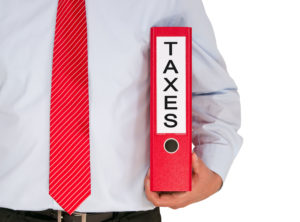
As we shared last week, Congress recently introduced two new online sales tax bills: Sensenbrenner’s H.R. 5893, which would make it harder for states to impose sales tax, and Goodlatte’s Online Sales Tax Simplification Act of 2016, which would make it much easier.
Goodlatte’s State Tax Clearinghouse
One concept in Goodlatte’s sales tax bill that’s worth exploring more is the clearinghouse concept.
According to the proposal, “A state may impose a sales, use or similar tax on a seller, or impose on a seller an obligation to collect such a tax imposed on a purchaser, with respect to remote sale of a product or service only if —
- The State is the origin State for the remote sales (where the company had the most employees during the previous calendar year);
- The tax is applied using the origin State’s tax base applicable to non-remote sales; and
- The State participates in the State tax clearinghouse.”
What exactly is the clearinghouse? This will be a newly created federal entity that will facilitate tax collection and distribution. The legislation proposes the following:
- If both the online retailer’s state and the consumer’s state participate in the clearinghouse, the retailer collects sales tax based on the consumer’s state’s rate.
- If the consumer’s state doesn’t participate in the clearinghouse, then the retailer charges their state’s sales tax rate.
- Each destination state (or the consumer’s state) would set a “destination rate” for sales taxes; this would be one rate used across the entire state. Each year the clearinghouse would publish the rates for online sellers to reference.
- The online seller would collect the sales tax and send it to their own state’s Department of Revenue; then the states would forward the taxes collected to the clearinghouse, which would then divide them up and send them to the correct states.
- If a state chooses not to participate in the clearinghouse, online sellers would work directly with the clearinghouse, reporting consumers’ names, addresses and total online sales every three months.
The Solution to the Online Sales Tax Debate?
As we said last week, we don’t think this a perfect solution to the online sales tax debate. The bill discusses the “simplicity” of the clearinghouse, but when was the last time the federal government came in and made something easier?
Goodlatte’s new sales tax bill isn’t as simple as it may seem; it still requires quite a bit of recordkeeping on behalf of businesses. In addition, there is no small seller exception, so presumably any business that sells across state lines must now collect sales tax on all sales, track the states into which it sells, and be able to report that accordingly. While that sounds easy enough, we’ve been in practice long enough to know that not all companies do that level of tracking; they would likely have to hire additional personnel or consultants to assist with the process. (Let’s consider that particularly in light of the last bullet above. What the HECK? States could choose not to participate and then the burden falls back on the seller to report consumer’s names and addresses? Every three months? How does that equal “simplicity”?)
Still, we do like the fact that it does offer a creative and different solution to the Marketplace Fairness Act, which stalled in Congress many times.
Ultimately, the question is, will this legislation pass now? Is Congress ready to deal with the online sales tax issue in a Presidential election year? We’ll see. Stay tuned for updates!
Miles Consulting Group, Inc. is a professional service firm in San Jose, California specializing in multi-state tax solutions. Our firm addresses state and local tax issues for our clients, including general state tax consulting, nexus reviews, tax credit and tax incentive maximization, income tax and sales/use tax planning and other special projects. To learn more, contact us today at www.MilesConsultingGroup.com.



















